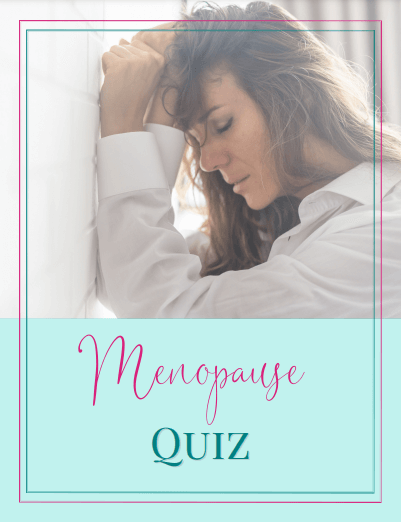Menopausians
It’s not natural to suffer in menopause. You have to take control.

Menopause
What’s Menopause?

Practical Definition
As part of the aging process, the human body—by design—goes through various biological transitions and menopause is one of them. By midlife (35-51), the menopause transition occurs that marks the end of reproduction. The reproductive system that started in puberty reaches its maturation, resulting in the decline of the reproductive hormones, estrogen and progesterone, leading to the end of menstruation and fertility. This signals the end of the reproductive life stage and the start of the non-reproductive life stage.
Medical Definition
Menopause signals a natural decline in reproductive hormones, and a woman is recognized to have reached menopause when she does not have a period for twelve consecutive months, marking the end of the reproductive stage. On average, this happens at age 51.
Three Phases

The beginning phase of the transition is known as perimenopause. On average, this begins in the late 30s to early 40s. During this time, the reproductive hormones, estrogen and progesterone, become unstable, which triggers new changes in the menstrual cycle and flow and possibly other noticeable changes in well-being, aka menopause symptoms. Perimenopause lasts until menopause. Menopause is marked by the cessation of your period, indicating that fertility has ended. On average, this occurs at age 51. The years after are the post-menopause years or the non-reproductive life stage. The transition duration and experience are unique to each woman.
How Your Body Changes in Menopause
Biological Changes

By midlife, your body is more or less halfway through your life span, were various bodily systems, changes with aging particularly the Reproductive System, Hormone Systems, Digestive System, Sleep-Wake Cycle, Stress Response System. These biological changes all impact the type, frequency, and severity of symptoms you experience over the menopause transition.
Common Menopause Symptoms
Possible Onset Symptoms
Possible Later Symptoms
… and more
Why is Menopause Such a Difficult Time for Many Women?
Lifestyle, Environmental Factors & Symptoms

The biological changes in menopause make your body more vulnerable to lifestyle and environmental factors. Therefore, the type, frequency, and severity of symptoms you experience are often triggered or influenced by your sleep habits, dietary tendencies, stress levels, choice of products consumed or used, etc.
Here’s My Process to Take Control of How You Feel

Understand How Your Body Changes and The Factors That Influence
Identify the emotional, physical, or mental menopause symptoms that are impacting how you function at work, in your relationships, and the quality of your well-being.

Cultivate Awareness and Recognize Triggers
Learn how to recognize factors at work, home, or on the go that influence symptoms’ type, frequency, and severity and increase your sense of control over what is happening.

Implement Specific Changes That Enhance and Balance
Make changes to your lifestyle and daily routines that enhance and balance your hormones and bodily systems with an arsenal of tools and strategies specific to your issues and how you want to look and feel.

Embrace A New Way of Living and Feel Like Yourself to Do What Matters
Learn to self-regulate and prioritize your needs to feel like yourself again: rested, calm, confident, energized to do the work that matters to you, enjoy great relationships, and fulfill the dreams of your second half of life.
Resources
Free Self-Help Tools
It’s time to change how menopause changes you. Download these free tools to get started.
Hormone Imbalance Quiz

Why do you feel “off”?
There’s a reason you don’t feel like yourself in menopause, and that is because of the changes in your hormones. This in-depth hormone imbalance quiz will empower you with the knowledge of what is happening internally and why you feel so “off,” which can guide your next steps in enhancing your hormone balance or getting further evaluation.


Menopause Quiz

Is Menopause Symptoms Impacting Your Work and Life?
Your menopause symptoms may be common, but it’s not natural to suffer during this transition. TAKE THE QUIZ to identify challenging symptoms and possible triggers. It can help you to know what you can change or avoid to feel better or to get the help you need.




